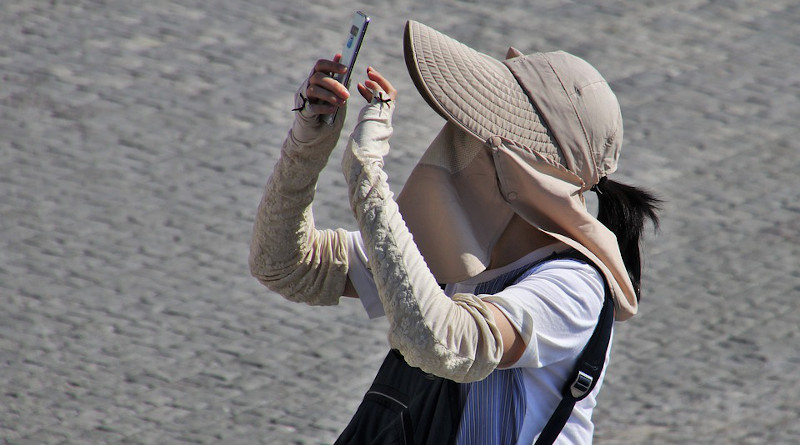Digital Authoritarianism In Southeast Asia: Emerging Trends – Analysis
By IPCS
By Angkuran Dey*
In October 2020, as a petition asking for the Thai king to be declared persona non grata in Germany started to gain traction, the Thai government blocked access to the site, Change.org. That same month, the government also asked Internet providers to curb access to Telegram, an encrypted chat app, to prevent protesters from using it to mobilise. With a ranking of 36/100, Thailand is ranked in Freedom House’s ‘Freedom on the Net 2021’ index as amongst the least free countries in the ASEAN region.
Governments in the region are using digital media as leverage to stifle dissent, push forward surveillance, and pass new cyber-security laws. The COVID-19 pandemic has only intensified these trends. This commentary seeks to explore the broad themes from Southeast Asia that indicate how authoritarian tendencies are gradually being catapulted into cyberspace, and affecting civil rights and democratic norms.
Spread of Surveillance Technology
The growth in surveillance is closely linked to the export of what may be called the ‘China Model’ of digital governance. Xinjiang provides a stark warning about its pervasive capabilities. For instance, in the city of Kashgar, all it takes is a click of a button for authorities to track and identify someone, aided by thousands of checkpoints installed across the city. This regional penetration of Chinese technology casts concerns about the right to privacy in Southeast Asia because such technologies can allow regimes with authoritarian tendencies to strengthen the grip over their populations. This comes at a time when investments in AI-based technologies in the region have grown, with countries like Singapore seeking to transition into ‘smart-nations’ through million-dollar investments in innovative AI solutions and biometrics.
For example, Chinese surveillance systems, which include wearable cameras with ‘AI-powered facial recognition technology,’ are now being used by local law enforcement agencies in Malaysia. In Thailand, 7-11 stores have been using AI-powered facial recognition pioneered in China to collect customer data. This is an example of how private entities can mine personal data without adequate legal safeguards.
Cyber-security Regulations
Existing laws that deal with defamation and sedition in the region have been extended to regulate dissent. There has been a dramatic rise in the circulation of fake news during the pandemic. However, this has turned into ‘lawfare’ wherein authorities are abusing existing laws to create fear within the population and push for self-censorship. .
A court ruling in the wake of the 2019 demonstrations in Indonesia’s Papua has set a dangerous precedent in the country, allowing Internet access to be blocked during social unrest. This further tightens the noose on digital activists, who are increasingly seeking freer spaces of dissent.
In March 2021, the Cambodian government cleared the ‘State of Emergency Law’, which, as of March 2020, has given sweeping powers to the Hun Sen government. Of this legislation, Article 5(10) seeks to surveil and track means of communication across different mediums. S everal activists, including a member of the banned opposition party, the Cambodian National Rescue Party (CNRP), were arrested based on a post that criticised the Chinese-made ‘Sinovac’ vaccine.
These regulations has allowed governments to silence political rivals and journalists. An example is that of the 2021 Nobel Peace Prize winner Maria Ressa, who founded the digital media network, Rappler. Rappler has critically covered President Rodrigo Duterte’s bloody ‘War on Drugs’. Ressa now faces ‘cyber libel’ charges over a story that established alleged links between a top judge and a businessman.
Clampdown on Dissent
The video of a fitness instructor working out in Myanmar’s capital, Naypidaw, unwittingly captured the beginning of the February 2021 coup. That the video was filmed at that time was an indicator of some level of Internet freedom. After the coup though, the military government instructed Internet Service Providers to block access to major social networking sites and messaging services. Protestors soon turned to Virtual Private Networks (VPN s) and underground networks to stay connected and circulate information about the ongoing protests. The passage of a new cybersecurity law will make even this circuitous route increasingly difficult. The new law will grant the junta sweeping powers to ban online content and the use of VPNs, as well as access to personal data.
In Thailand, in January 2021, a court handed down a harsh 43 and a half-year sentence to a woman convicted under the lese majeste law, which protects the monarch from defamation, insult and threats. The conviction was based on a collection of audio recordings of the woman recovered from her Facebook and YouTube profiles. This has led to fear surrounding the increased capabilities of Thai authorities for monitoring netizens.
Way Forward
Southeast Asian countries have seen various recent cyber-security-related policy and legislative changes. This throws up questions of data privacy and the future of digital rights. The pandemic may have ushered in stricter state emphasis on controlling lines of communication but online protests have yet to be quelled, with activists constantly seeking new spaces for dissent.
*Angkuran Dey is a Research Intern with IPCS’ South East Asia Research Programme (SEARP).

